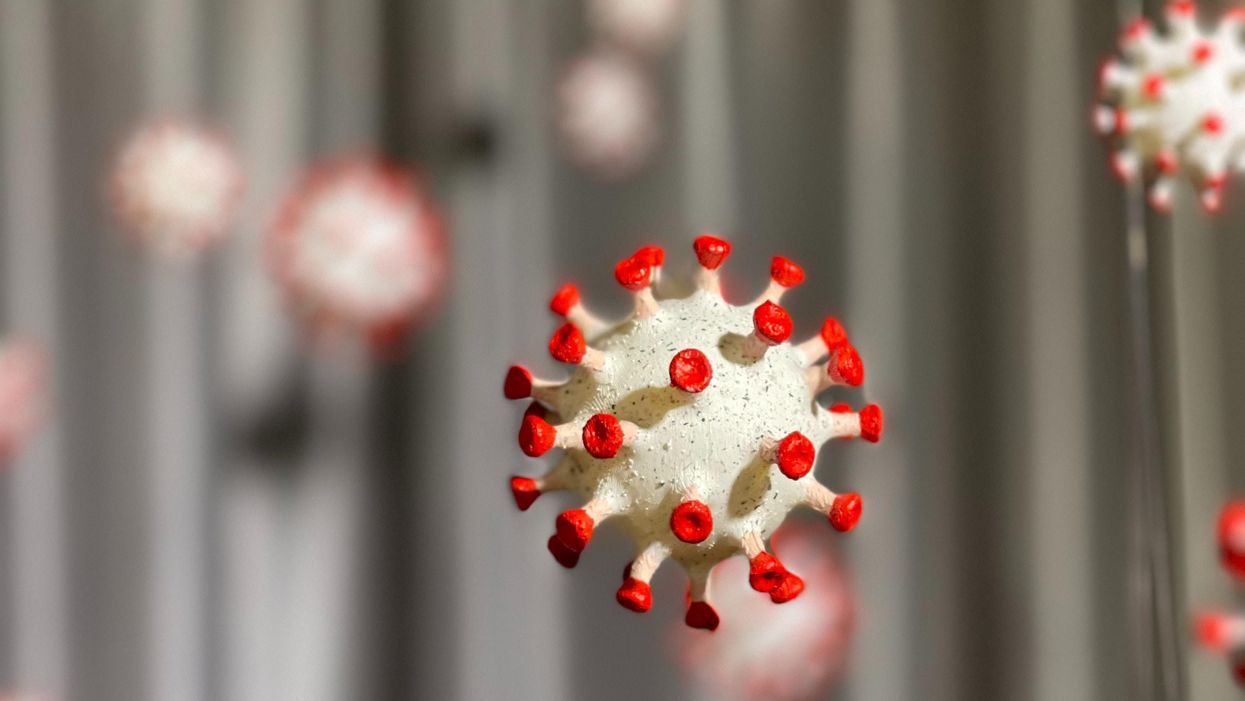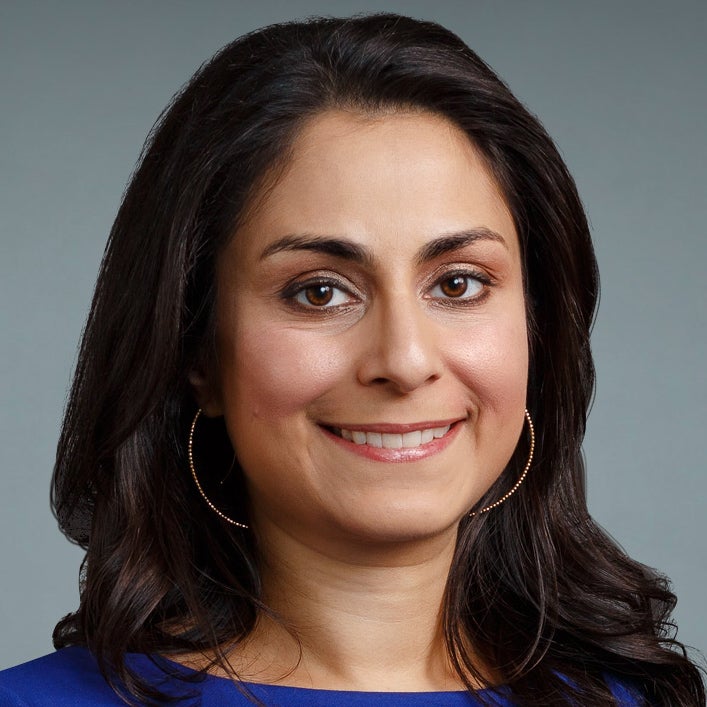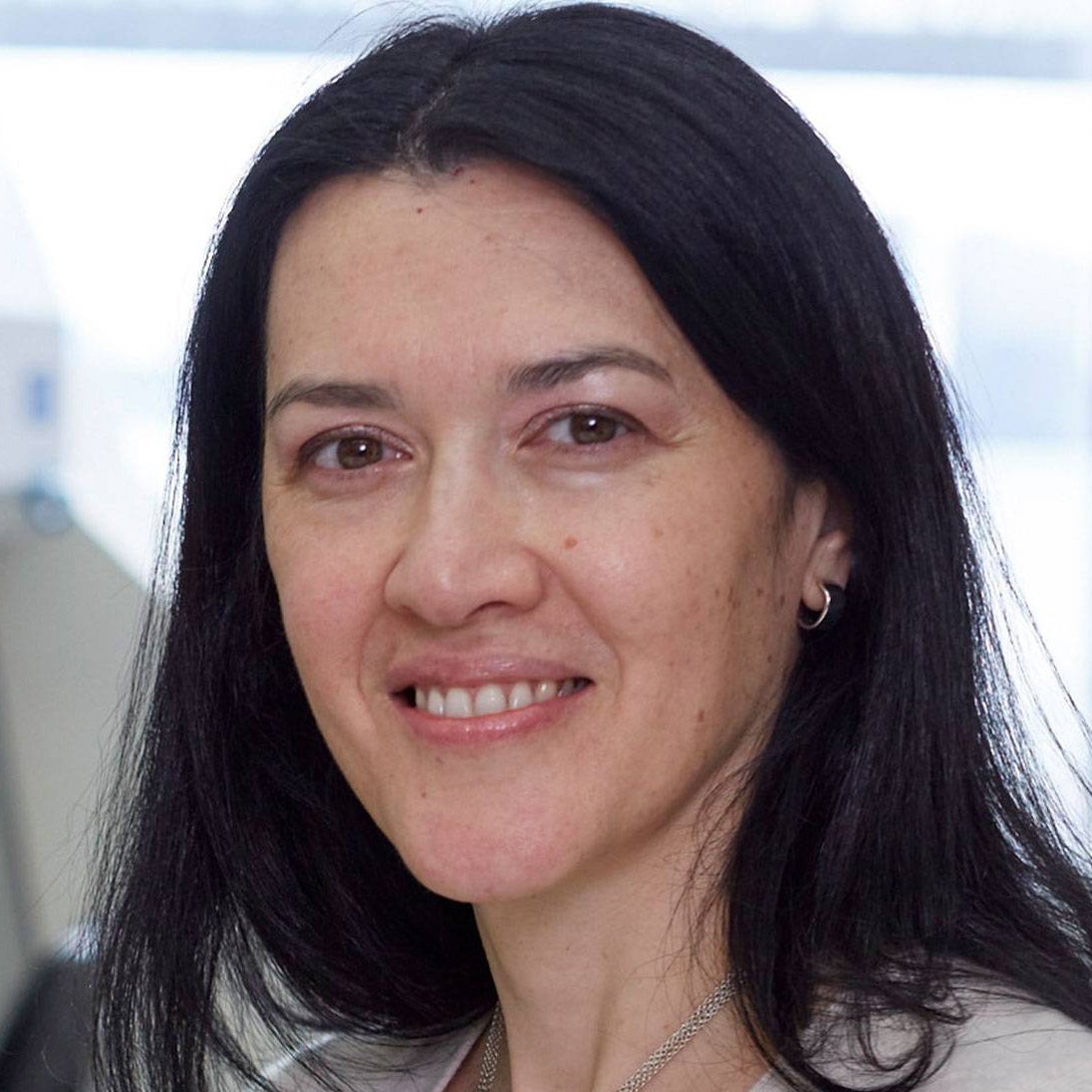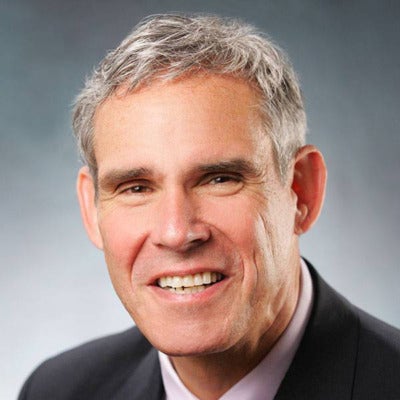Dec. 17th Event: The Latest on Omicron, Boosters, and Immunity
Kira Peikoff was the editor-in-chief of Leaps.org from 2017 to 2021. As a journalist, her work has appeared in The New York Times, Newsweek, Nautilus, Popular Mechanics, The New York Academy of Sciences, and other outlets. She is also the author of four suspense novels that explore controversial issues arising from scientific innovation: Living Proof, No Time to Die, Die Again Tomorrow, and Mother Knows Best. Peikoff holds a B.A. in Journalism from New York University and an M.S. in Bioethics from Columbia University. She lives in New Jersey with her husband and two young sons. Follow her on Twitter @KiraPeikoff.

The Omicron variant poses new uncertainty for the vaccines, which four leading experts will address during our virtual event on December 17th, 2021.
This virtual event will convene leading scientific and medical experts to discuss the most pressing questions around the new Omicron variant, including what we know so far about its ability to evade COVID-19 vaccines, the role of boosters in eliciting heightened immunity, and the science behind variants and vaccines. A public Q&A will follow the expert discussion.
EVENT INFORMATION:
Date: Friday Dec 17, 2021
2:00pm - 3:30pm EST

Dr. Céline Gounder, MD, ScM, is the CEO/President/Founder of Just Human Productions, a non-profit multimedia organization. She is also the host and producer of American Diagnosis, a podcast on health and social justice, and Epidemic, a podcast about infectious disease epidemics and pandemics. She served on the Biden-Harris Transition COVID-19 Advisory Board.
 Dr. Theodora Hatziioannou, Ph.D., is a Research Associate Professor in the Laboratory of Retrovirology at The Rockefeller University. Her research includes identifying plasma samples from recovered COVID-19 patients that contain antibodies capable of neutralizing the SARS-CoV-2 coronavirus.
Dr. Theodora Hatziioannou, Ph.D., is a Research Associate Professor in the Laboratory of Retrovirology at The Rockefeller University. Her research includes identifying plasma samples from recovered COVID-19 patients that contain antibodies capable of neutralizing the SARS-CoV-2 coronavirus.

Dr. Onyema Ogbuagu, MBBCh, is an Associate Professor at Yale School of Medicine and an infectious disease specialist who treats COVID-19 patients and leads Yale’s clinical studies around COVID-19. He ran Yale’s trial of the Pfizer/BioNTech vaccine.

Dr. Eric Topol, M.D., is a cardiologist, scientist, professor of molecular medicine, and the director and founder of Scripps Research Translational Institute. He has led clinical trials in over 40 countries with over 200,000 patients and pioneered the development of many routinely used medications.
This event is the fourth of a four-part series co-hosted by Leaps.org, the Aspen Institute Science & Society Program, and the Sabin–Aspen Vaccine Science & Policy Group, with generous support from the Gordon and Betty Moore Foundation and the Howard Hughes Medical Institute.

Kira Peikoff was the editor-in-chief of Leaps.org from 2017 to 2021. As a journalist, her work has appeared in The New York Times, Newsweek, Nautilus, Popular Mechanics, The New York Academy of Sciences, and other outlets. She is also the author of four suspense novels that explore controversial issues arising from scientific innovation: Living Proof, No Time to Die, Die Again Tomorrow, and Mother Knows Best. Peikoff holds a B.A. in Journalism from New York University and an M.S. in Bioethics from Columbia University. She lives in New Jersey with her husband and two young sons. Follow her on Twitter @KiraPeikoff.
Individuals seeking funding for experimental therapies may enroll in legitimate clinical trials -- or fall prey to snake oil.
Nearly a decade ago, Jamie Anderson hit his highest weight ever: 618 pounds. Depression drove him to eat and eat. He tried all kinds of diets, losing and regaining weight again and again. Then, four years ago, a friend nudged him to join a gym, and with a trainer's guidance, he embarked on a life-altering path.
Ethicists become particularly alarmed when medical crowdfunding appeals are for scientifically unfounded and potentially harmful interventions.
"The big catalyst for all of this is, I was diagnosed as a diabetic," says Anderson, a 46-year-old sales associate in the auto care department at Walmart. Within three years, he was down to 276 pounds but left with excess skin, which sagged from his belly to his mid-thighs.
Plastic surgery would cost $4,000 more than the sum his health insurance approved. That's when Anderson, who lives in Cabot, Arkansas, a suburb outside of Little Rock, turned to online crowdfunding to raise money. In a few months last year, current and former co-workers and friends of friends came up with that amount, covering the remaining expenses for the tummy tuck and overnight hospital stay.
The crowdfunding site that he used, CoFund Health, aimed to give his donors some peace of mind about where their money was going. Unlike GoFundMe and other platforms that don't restrict how donations are spent, Anderson's funds were loaded on a debit card that only worked at health care providers, so the donors "were assured that it was for medical bills only," he says.
CoFund Health was started in January 2019 in response to concerns about the legitimacy of many medical crowdfunding campaigns. As crowdfunding for health-related expenses has gained more traction on social media sites, with countless campaigns seeking to subsidize the high costs of care, it has given rise to some questionable transactions and legitimate ethical concerns.
Common examples of alleged fraud have involved misusing the donations for nonmedical purposes, feigning or embellishing the story of one's own unfortunate plight or that of another person, or impersonating someone else with an illness. Ethicists become particularly alarmed when medical crowdfunding appeals are for scientifically unfounded and potentially harmful interventions.
About 20 percent of American adults reported giving to a crowdfunding campaign for medical bills or treatments, according to a survey by AmeriSpeak Spotlight on Health from NORC, formerly called the National Opinion Research Center, a non-partisan research institution at the University of Chicago. The self-funded poll, conducted in November 2019, included 1,020 interviews with a representative sample of U.S. households. Researchers cited a 2019 City University of New York-Harvard study, which noted that medical bills are the most common basis for declaring personal bankruptcy.
Some experts contend that crowdfunding platforms should serve as gatekeepers in prohibiting campaigns for unproven treatments. Facing a dire diagnosis, individuals may go out on a limb to try anything and everything to prolong and improve the quality of their lives.
They may enroll in well-designed clinical trials, or they could fall prey "to snake oil being sold by people out there just making a buck," says Jeremy Snyder, a health sciences professor at Simon Fraser University in British Columbia, Canada, and the lead author of a December 2019 article in The Hastings Report about crowdfunding for dubious treatments.
For instance, crowdfunding campaigns have sought donations for homeopathic healing for cancer, unapproved stem cell therapy for central nervous system injury, and extended antibiotic use for chronic Lyme disease, according to an October 2018 report in the Journal of the American Medical Association.
Ford Vox, the lead author and an Atlanta-based physician specializing in brain injury, maintains that a repository should exist to monitor the outcomes of experimental treatments. "At the very least, there ought to be some tracking of what happens to the people the funds are being raised for," he says. "It would be great for an independent organization to do so."
"Even if it appears like a good cause, consumers should still do some research before donating to a crowdfunding campaign."
The Federal Trade Commission, the national consumer watchdog, cautions online that "it might be impossible for you to know if the cause is real and if the money actually gets to the intended recipient." Another caveat: Donors can't deduct contributions to individuals on tax returns.
"Even if it appears like a good cause, consumers should still do some research before donating to a crowdfunding campaign," says Malini Mithal, associate director of financial practices at the FTC. "Don't assume all medical treatments are tested and safe."
Before making any donation, it would be wise to check whether a crowdfunding site offers some sort of guarantee if a campaign ends up being fraudulent, says Kristin Judge, chief executive and founder of the Cybercrime Support Network, a Michigan-based nonprofit that serves victims before, during, and after an incident. They should know how the campaign organizer is related to the intended recipient and note whether any direct family members and friends have given funds and left supportive comments.
Donating to vetted charities offers more assurance than crowdfunding that the money will be channeled toward helping someone in need, says Daniel Billingsley, vice president of external affairs for the Oklahoma Center of Nonprofits. "Otherwise, you could be putting money into all sorts of scams." There is "zero accountability" for the crowdfunding site or the recipient to provide proof that the dollars were indeed funneled into health-related expenses.
Even if donors may have limited recourse against scammers, the "platforms have an ethical obligation to protect the people using their site from fraud," says Bryanna Moore, a postdoctoral fellow at Baylor College of Medicine's Center for Medical Ethics and Health Policy. "It's easy to take advantage of people who want to be charitable."
There are "different layers of deception" on a broad spectrum of fraud, ranging from "outright lying for a self-serving reason" to publicizing an imaginary illness to collect money genuinely needed for basic living expenses. With medical campaigns being a top category among crowdfunding appeals, it's "a lot of money that's exchanging hands," Moore says.
The advent of crowdfunding "reveals and, in some ways, reinforces a health care system that is totally broken," says Jessica Pierce, a faculty affiliate in the Center for Bioethics and Humanities at the University of Colorado Anschutz Medical Campus in Denver. "The fact that people have to scrounge for money to get life-saving treatment is unethical."
Crowdfunding also highlights socioeconomic and racial disparities by giving an unfair advantage to those who are social-media savvy and capable of crafting a compelling narrative that attracts donors. Privacy issues enter into the picture as well, because telling that narrative entails revealing personal details, Pierce says, particularly when it comes to children, "who may not be able to consent at a really informed level."
CoFund Health, the crowdfunding site on which Anderson raised the money for his plastic surgery, offers to help people write their campaigns and copy edit for proper language, says Matthew Martin, co-founder and chief executive officer. Like other crowdfunding sites, it retains a few percent of the donations for each campaign. Martin is the husband of Anderson's acquaintance from high school.
So far, the site, which is based in Raleigh, North Carolina, has hosted about 600 crowdfunding campaigns, some completed and some still in progress. Campaigns have raised as little as $300 to cover immediate dental expenses and as much as $12,000 for cancer treatments, Martin says, but most have set a goal between $5,000 and $10,000.
Whether or not someone's campaign is based on fact or fiction remains for prospective donors to decide.
The services could be cosmetic—for example, a breast enhancement or reduction, laser procedures for the eyes or skin, and chiropractic care. A number of campaigns have sought funding for transgender surgeries, which many insurers consider optional, he says.
In July 2019, a second site was hatched out of pet owners' requests for assistance with their dogs' and cats' medical expenses. Money raised on CoFund My Pet can only be used at veterinary clinics. Martin says the debit card would be declined at other merchants, just as its CoFund Health counterpart for humans will be rejected at places other than health care facilities, dental and vision providers, and pharmacies.
Whether or not someone's campaign is based on fact or fiction remains for prospective donors to decide. If a donor were to regret a transaction, he says the site would reach out to the campaign's owner but ultimately couldn't force a refund, Martin explains, because "it's hard to chase down fraud without having access to people's health records."
In some crowdfunding campaigns, the individual needs some or all the donated resources to pay for travel and lodging at faraway destinations to receive care, says Snyder, the health sciences professor and crowdfunding report author. He suggests people only give to recipients they know personally.
"That may change the calculus a little bit," tipping the decision in favor of donating, he says. As long as the treatment isn't harmful, the funds are a small gesture of support. "There's some value in that for preserving hope or just showing them that you care."
Coronavirus Misinformation: How You Can Fight Back
Turn yourself into a source of coronavirus facts and a bulwark against the fake, misleading and fraudulent.
When it comes to fighting the new coronavirus threat, the truth is one of the few things more crucial than a gallon of hand sanitizer. But these days, both can be hard to find if you don't know where to look.
"Humans are wired to respond to emotional triggers and share misinformation if it reinforces existing beliefs and prejudices."
While it's only been around for a few months, COVID-19 has already produced an ever-expanding universe of conspiracy theories about its origins, its spread, and the danger it poses. Meanwhile, fraudulent cures and myths about treatments threaten to upend public health efforts to contain the epidemic.
But ordinary citizens aren't helpless. Research offers insight into why we're susceptible to misinformation, and armies of fact-checkers can tell us what's real and what isn't. Meanwhile, experts are offering tips about how we can effectively promote facts whether we're chatting with a stranger at the post office or challenging a cousin on Facebook.
Here a four-part strategy to help you fight back against the Coronavirus Misinformation Industrial Complex:
Understand How Bogus Beliefs Work
That crank on the Internet may be your neighbor. Or maybe even you.
According to a 2014 study published in JAMA Internal Medicine, nearly half of American surveyed said they believed in at least one grand medical conspiracy theory. Twenty percent agreed, for example, that cell phones cause cancer but officials won't do anything because of corporate pressure, and 37 percent believed an elaborate conspiracy theory about the suppression of natural cancer cures. "Although it is common to disparage adherents of conspiracy theories as a delusional fringe of paranoid cranks, our data suggest that medical conspiracy theories are widely known, broadly endorsed, and highly predictive of many common health behaviors," the study authors write.
In an interview with leapsmag, study lead author Eric Oliver said we're drawn to "conspiracy theories that correspond with our intuitions."
"In the case of medicine, I think there are three big factors: Fears of Big Pharma -- a large percentage of Americans have a distorted sense of what pharmaceutical companies are capable of -- fears of government, and fears of contagion," said Oliver, a political scientist at the University of Chicago.
Why does it matter if people believe in conspiracy theories about coronavirus? As Oliver's study notes, conspiracy theorists are less likely to rely on traditional medicine, get flu shots, or go to annual check-ups. They could be especially susceptible to disease and inappropriate treatment.
Joseph Uscinski, a professor of political science at the University of Miami who studies conspiracies, elaborated on how this works. "You could have people who think coronavirus is fake and say, 'I'm not going to wash my hand or take preventive action. This is the media making something up, or this is just a plot for the pharmaceutical companies to sell a vaccine.' If you have a lot of people acting that way, that increases the ability of the virus to spread."
Get the Facts from the Experts
How can you avoid being a misinformation source? Educate yourself to make sure you're not spouting fake facts yourself with the instant ease that the Internet allows. "Humans are wired to respond to emotional triggers and share misinformation if it reinforces existing beliefs and prejudices," writes misinformation scholar Claire Wardle in a 2019 Scientific American commentary. That means you too.
For coronavirus facts, experts recommend looking to the websites of government agencies (such as the CDC, World Health Organization and National Institutes of Health) and top-tier medical organizations (Mayo Clinic, Infectious Disease Society of America).
Respected mainstream news outlets such as The New York Times and National Public Radio offer extensive original reporting on the coronavirus threat. While some news outlets still require users to pay to get full access to stories, others have dropped their paywalls and made coronavirus content free to all. These include the Seattle Times, Bloomberg News and the medical news site Stat.
Locally, look to your region's public health department, news outlets, and medical organizations such as hospitals and health plans.
The Poynter Institute, a journalism watchdog outfit, offers a helpful guide to evaluating what you read about coronavirus. And a paid service called NewsGuard offers a browser plug-in that provides a "trust rating" for popular news sites. "Our goal is to teach news literacy–and we hope all websites will earn green ratings and be generally reliable to consumers," the NewsGuard site says.
"As we combat misinformation, we also need to be mindful of the fact that we're dealing with a lot of uncertainty."
Remember, however, that scientists and physicians are learning more about the coronavirus each day. Assumptions about the virus will change as more information comes in, and there are still many questions about crucial topics like its fatality rate and the ways the virus spreads. You should expect that reliable sources – and experts – may provide conflicting information.
"As we combat misinformation, we also need to be mindful of the fact that we're dealing with a lot of uncertainty," says Boston cardiologist and author Dr. Haider Warraich of Brigham and Women's Hospital.
Double-Check Suspicious Information
No, the coronavirus wasn't created in a Winnipeg laboratory. You can't kill it by drinking bleach or frolicking in snow. And, as the French Health Ministry helpfully advised on Twitter, "Non, La cocaïne NE protège PAS contre le #COVID19" – "No, cocaine does NOT prevent Covid-19."
Facebook, YouTube and Twitter are all trying to remove fake or misleading coronavirus content, The New York Times reported, and "all said they were making efforts to point people back to reliable sources of medical information." Still, as the Times reports, bogus cures and conspiracy theories are rampant across social media and beyond.
Fortunately, there are many fact-checking resources. Turn to them for ammunition before you amplify – or challenge -- a coronavirus claim that seems suspicious.
Helpful myth-busting resources include:
** The venerable fact-checking site Snopes.com, which has checked multiple coronavirus claims. (Example: No, garlic water won't cure coronavirus.)
** The World Health Organization. (Example: No, mosquito bites can't transmit coronavirus)
** FactCheck.org. (Example: No, a disgraced Harvard scientist wasn't arrested for creating the coronavirus.)
** PolitiFact.org. (Example: No, the coronavirus is not just "the common cold.")
** The International Fact-Checking Network, accessible via the social-media hashtags #CoronaVirusFacts and #DatosCoronaVirus.
Correct Others With Caution
On social media, anger and sarcasm make up a kind of common tongue. But sick burns won't force misinformed people see the light. Instead, try a gentler approach.
"The most important thing would be to first acknowledge their anxieties rather than first trying to rationalize away their misbeliefs," said the University of Chicago's Oliver. "People embrace misinformation and conspiracy theories because they are afraid and trying to make sense of the world. Their beliefs serve a strong emotional function and will be defended as such. Trying to rationalize with them or argue with them may be counterproductive if one can't first put them at some ease."
Turn yourself into a source of coronavirus facts and a bulwark against the fake, misleading, and fraudulent.
So what can you do? "There will never be a magic bullet," the University of Miami's Uscinski said, but one approach is to highlight reliable information from sources that the person trusts, such as news outlets (think MSNBC or Fox News) or politicians.
However, don't waste your time. "If you have people who are believing in the craziest thing, they're probably not going to offer a rational conversation," he said. And, he added, there's an alternative to correcting others: Turn yourself into a source of coronavirus facts and a bulwark against the fake, misleading, and fraudulent. "We can be preventive and inoculate people against these beliefs," he said, "by flooding the information environment with proper information as much as possible."

